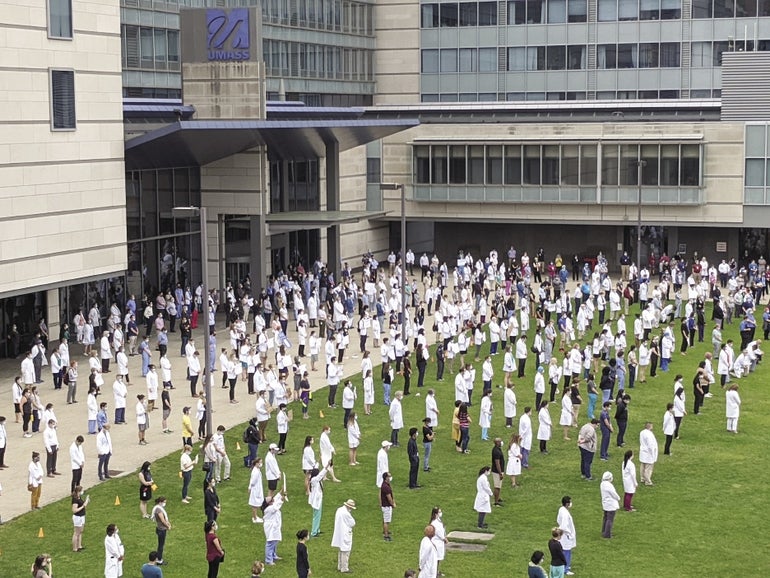In more ways than one, diversity, equity, and inclusion in Central Massachusetts is a work in progress.
Get Instant Access to This Article
Subscribe to Worcester Business Journal and get immediate access to all of our subscriber-only content and much more.
- Critical Central Massachusetts business news updated daily.
- Immediate access to all subscriber-only content on our website.
- Bi-weekly print or digital editions of our award-winning publication.
- Special bonus issues like the WBJ Book of Lists.
- Exclusive ticket prize draws for our in-person events.
Click here to purchase a paywall bypass link for this article.
In more ways than one, diversity, equity, and inclusion in Central Massachusetts is a work in progress. On the one hand, it’s an industry in and of itself, which has boomed over the lifespan of the coronavirus pandemic, as companies seek to repair cultures entrenched in inequity and exclusion. On the other, it’s a mission, whose parameters can’t be solely defined within the confines of a particular economic sector. In Central Massachusetts, as with most of the country, there is much work to be done heading into 2022.
Business investment, not just DEI officers
Since 2020, there has been a rush on hiring DEI experts – and consultants – to overhaul equity initiatives and challenges within companies of all sizes and across all sectors, with hiring announcements distributed on a near-constant basis. But implementing meaningful changes, including establishing systems of transparency and accountability, is more than a one-person, or one-contract, job. Companies professing their commitment to DEI are finding – or soon will – they’ll need to put their money where their mouth is, if they plan to see those goals come to fruition. That doesn’t mean saddling overburdened human resources departments with more work, but rather investing – financially – in a cultural shift with the software, programming, and staffing changes needed to make those shifts a reality.
DEI officer burnout
While the gap between DEI hiring and DEI investment is being filled, DEI officers – and consultants – will face continued burnout. Coupled with yet another winter coronavirus surge, these workers are going to be looking for resources to both do their inherently challenging jobs on top of continued speed bumps from a global pandemic. This is not to say their efforts are doomed, by any means, but it’s challenging to work right now in almost any industry, let alone one facing increased demand with large emotional-social consequences.
Leadership will be slow to diversify
While onboarding efforts in many industries have been focused on recruiting a diverse workforce, movement happens more slowly within high-level positions. This happens for a variety of reasons, including employee retention issues and a lack of pathways for advancement for both women and people of color, and especially women of color. It’s not unusual for higher-level positions to experience less turnover than lower-level positions. Because of all this, it may be a while before meaningful company leadership change comes to fruition – not because it’s impossible, but because that’s how the current system is set up.

